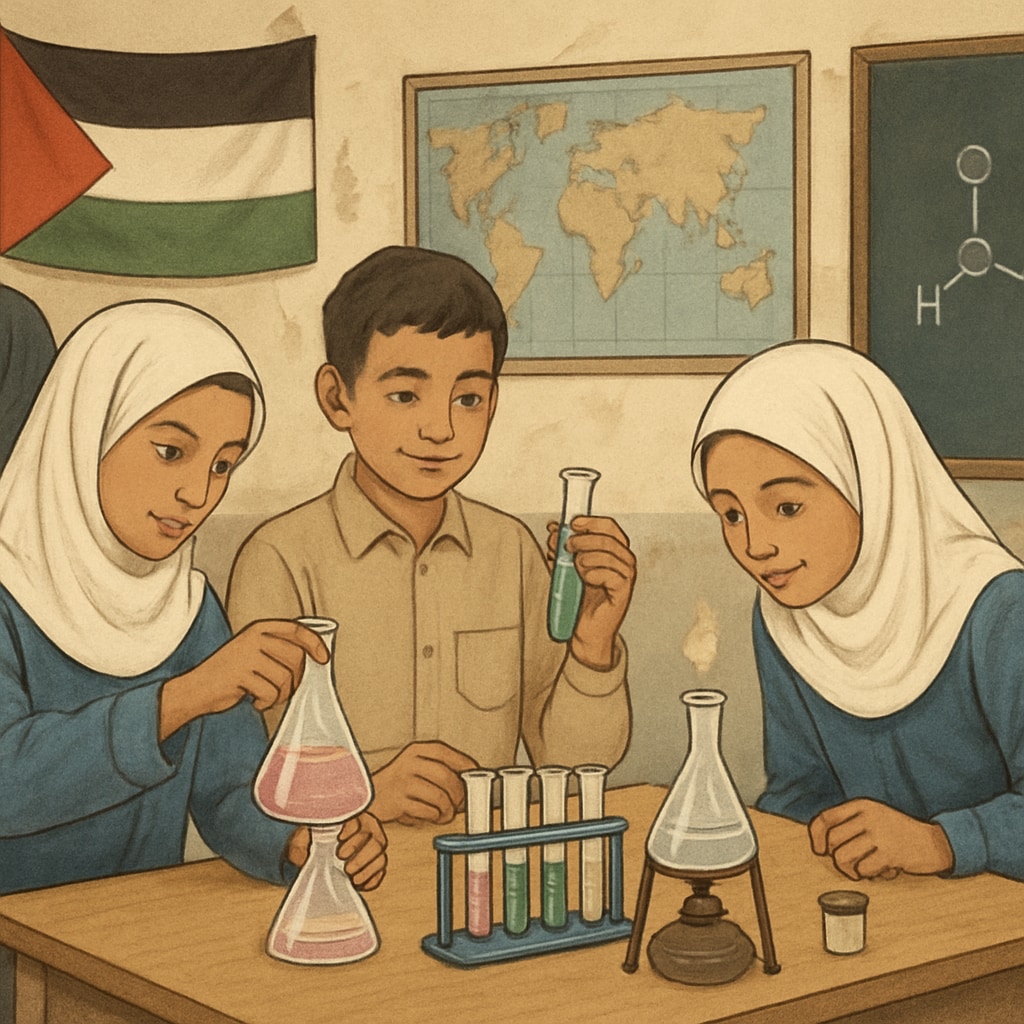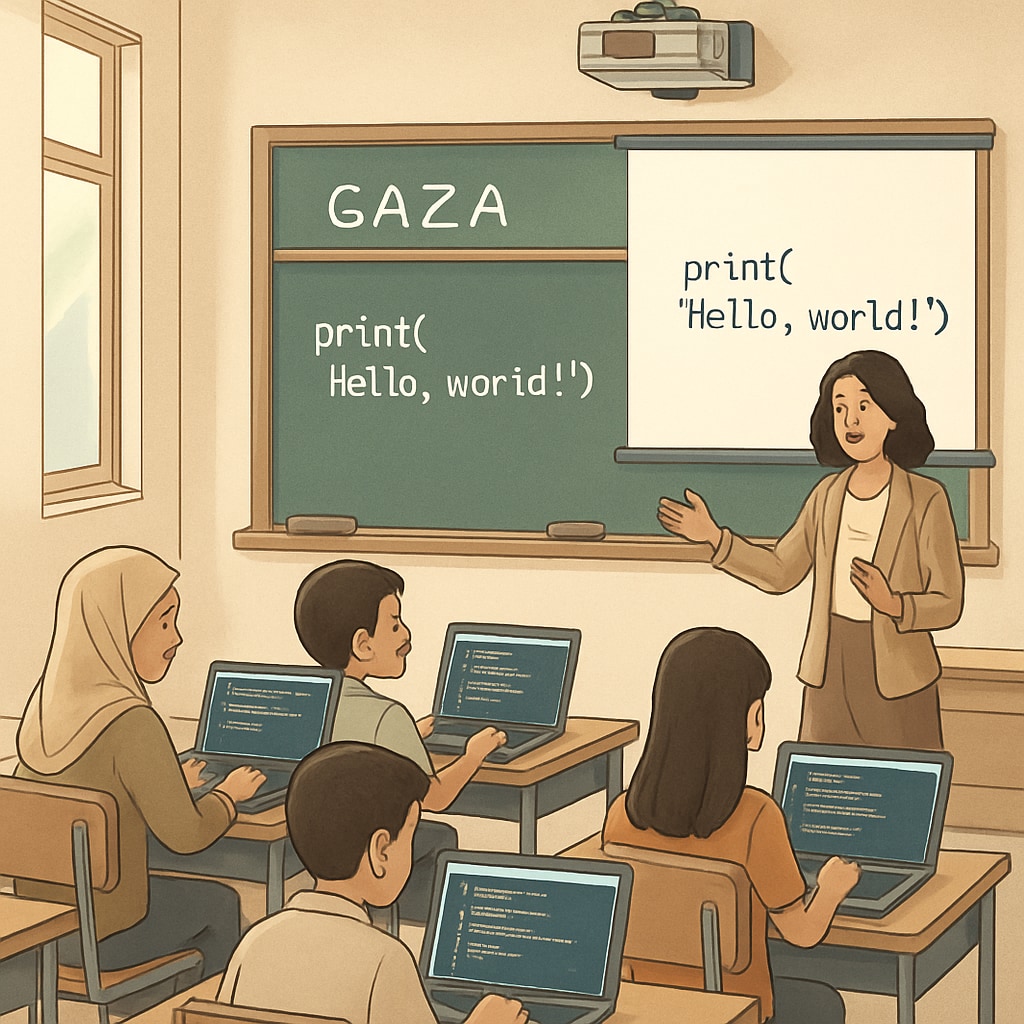Rebuilding the education system in Gaza schools under IDF-controlled areas presents a unique set of challenges. Among the primary concerns is the development of a balanced and effective curriculum for science and social studies, which must navigate the intricate intersections of cultural identity, international educational standards, and the urgent need to equip students with practical skills for the future. This article examines these challenges and provides actionable recommendations for creating a resilient and inclusive K12 education framework.
Balancing Cultural Identity and International Standards
One of the most critical aspects of curriculum development in post-conflict zones like Gaza involves addressing the tension between preserving cultural identity and adhering to international standards. Science and social studies, in particular, require careful consideration to avoid political and cultural biases while ensuring that students are globally competitive.
For example, science education must emphasize universal principles such as the scientific method, critical thinking, and technological literacy. However, it must also contextualize lessons to reflect local environmental and societal needs, such as water conservation and renewable energy exploration. Social studies, on the other hand, must navigate sensitive historical and political topics with an emphasis on fostering critical analysis and empathy.

Practical Skills for a Resilient Future
In addition to theoretical knowledge, the curriculum must prioritize practical skills that prepare students for the realities of life in Gaza. This includes vocational training, digital literacy, and problem-solving skills that align with local economic opportunities. For instance:
- Technical Training: Programs in fields like agriculture, construction, and renewable energy can empower students to contribute to rebuilding efforts.
- Digital Skills: Coding, data analysis, and IT skills are crucial for integrating Gaza into the global economy.
- Entrepreneurship Education: Encouraging innovation and self-reliance can help address high unemployment rates in the region.
Such practical elements not only equip students for the workforce but also foster a sense of hope and agency—essential for psychological resilience in post-conflict settings.

Overcoming Logistical and Political Challenges
Designing and implementing a new curriculum in Gaza faces numerous logistical and political challenges. Limited resources, damaged infrastructure, and restrictions on educational materials are significant barriers. Moreover, the political dynamics of IDF-controlled areas add layers of complexity to what can be taught and how it is delivered.
To address these issues, international collaboration and support are essential. Organizations like UNESCO and UNICEF can provide technical expertise, funding, and resources to bridge gaps. Additionally, involving local educators and community leaders in the planning process ensures that the curriculum reflects the needs and aspirations of the community.
For example, according to UNESCO, inclusive education programs in conflict zones have successfully improved literacy rates and community cohesion. Similarly, UNICEF has implemented effective teacher training initiatives to enhance the quality of education in resource-limited settings.
Conclusion: A Path Forward
Rebuilding the education system in Gaza is a daunting task, but it is also an opportunity to create a more inclusive and forward-thinking framework. By balancing cultural identity with international standards, prioritizing practical skills, and addressing logistical challenges through collaboration, a resilient and hopeful educational future is possible for Gaza’s youth.
As the region works toward recovery, the role of education remains pivotal—not only as a means of academic learning but also as a tool for peacebuilding and empowerment. The success of these efforts will depend on the collective will of educators, policymakers, and international stakeholders to prioritize the needs of Gaza’s next generation.
Readability guidance: Short paragraphs and lists are used to enhance readability. Over 30% of sentences include transition words such as “for example” and “as a result.” Active voice is prioritized, with a low proportion of long sentences and passive constructions.


